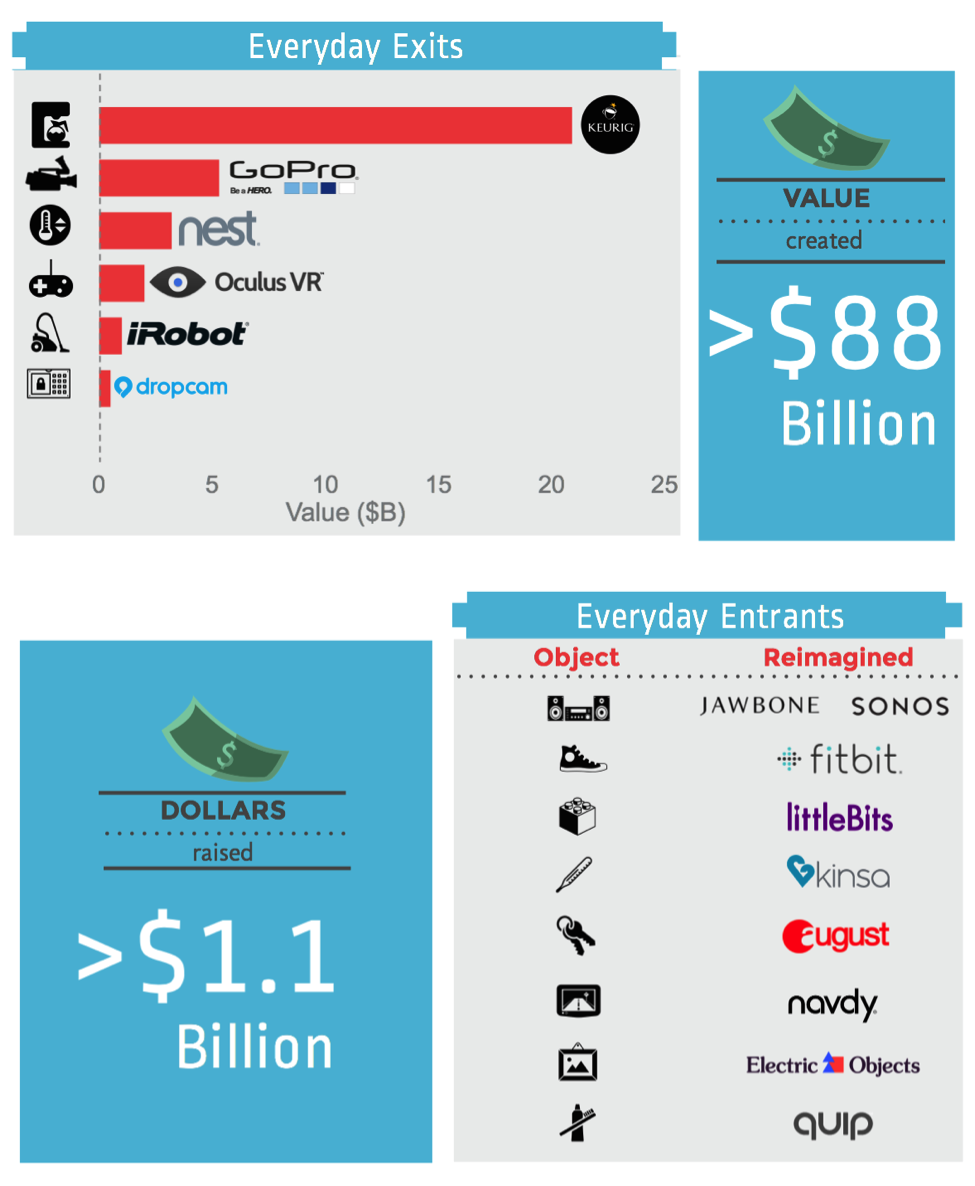Matt Witheiler
More posts from Matt Witheiler
Editor’s note: Matt Witheiler is a general partner at Flybridge Capital Partners. You can follow him on his blog.
Can we agree that the term “Internet of things” should go away when we’re talking about consumer products? Like the “world wide web” before it, the Internet of things phrase is a relic from the past. I don’t need a connected washing machine or Internet-enabled color changing LED light bulb and nor does anyone else. “Things” don’t need the Internet.
I especially dislike the term because “Internet of things” does not accurately describe the consumer hardware revolution we’re in the midst of. Crowdfunding and low-cost development platforms are redefining how hardware companies are built and opening up a whole new category to innovation. This trend began two or so years ago and, in my opinion, we’re still in the early innings when it comes to the new wave of hardware startups.
So over the past few years, as I dove into hundreds of hardware startups, every time I came across a project labeled “Internet of things” I cringed. More often than not, these companies were focused on bringing connectivity to products simply for technology’s sake. Bolting the Internet to consumer devices without fundamentally changing the experience does little to excite me; these products are novelties. Instead, I found that the “things” projects that caught my attention were ones that reimagined everyday objects.
What do I mean by “reimagined everyday objects?” In the simplest terms I mean hardware products that bring new consumer experiences to products we interact with on a regular basis, transforming the every day. In my vision of the future — three to eight years from now — historically “dumb” products are made smart via the intersection of novel design and device connectivity while newer “smart” products get smarter with new experiences enabled by advanced technology. Perhaps it’s easiest to bring the theme alive via some examples (full infographic here):
 In just the examples above, reimagining some of our most basic daily-use products has generated over $88 billion in exit value and been the theme behind more than $1.1 billion in venture funding. And there are plenty more dollars that have been invested and returned in the theme.
In just the examples above, reimagining some of our most basic daily-use products has generated over $88 billion in exit value and been the theme behind more than $1.1 billion in venture funding. And there are plenty more dollars that have been invested and returned in the theme.
Criteria for success
What does it take to reimagine an object?
First off, the project must be based on an existing object. Changing consumer behavior is hard, so leveraging a product that consumers already know intimately and use regularly is an easier path to success than trying to create something new. It also makes selling the product much simpler since consumers already know and understand the paradigm. Marketing the unfamiliar is a much more difficult task than marketing the every day.
Secondly, the project must use hardware to enable a new experience. Simply bolting Internet on is not enough to create a magic consumer experience; no one needs data for data’s sake. Reimagined everyday objects should fundamentally change how consumers interact with the product. Nest did this by taking an analog artifact stuck in a prominent location in the home and made it not only beautiful, creating lust, but also practical, offering money savings via efficiency gains. As a result, it succeed where many, many others failed.
Finally, reimagined objects should take advantage of their new functionality to explore additional engagement and monetization opportunities provided by the object; think Keurig’s K-Cups, GoPro’s video network or Oculus’ developer platform. It’s these capabilities that really strengthen the ability to build value in reimagined objects; it’s part of what separates GoPro, with it’s video network, from hundreds of others.
Taking these criteria and applying them to some of the recent “Internet of things” products, one can take a stab at which may be difficult to get traction for and which may be easier.
In the “difficult” category, take the example of the Whirlpool connected washing machine (violates criteria two) and all the generic, connected LED light bulbs that have come to market (violate criteria three). In the “more likely to succeed” category, I point to companies like Navdy (replacing car GPS with a great new experience and a powerful software ecosystem) and Kinsa (replacing thermometers with a connected version that allows for network-based illness tracking and reporting).
Indeed, there is a massive wave of reimagination underway. If you’re one of the many entrepreneurs working on rethinking how hardware can change consumer products, you’re in good company. Just don’t call yourself an Internet of things startup.






























Comment